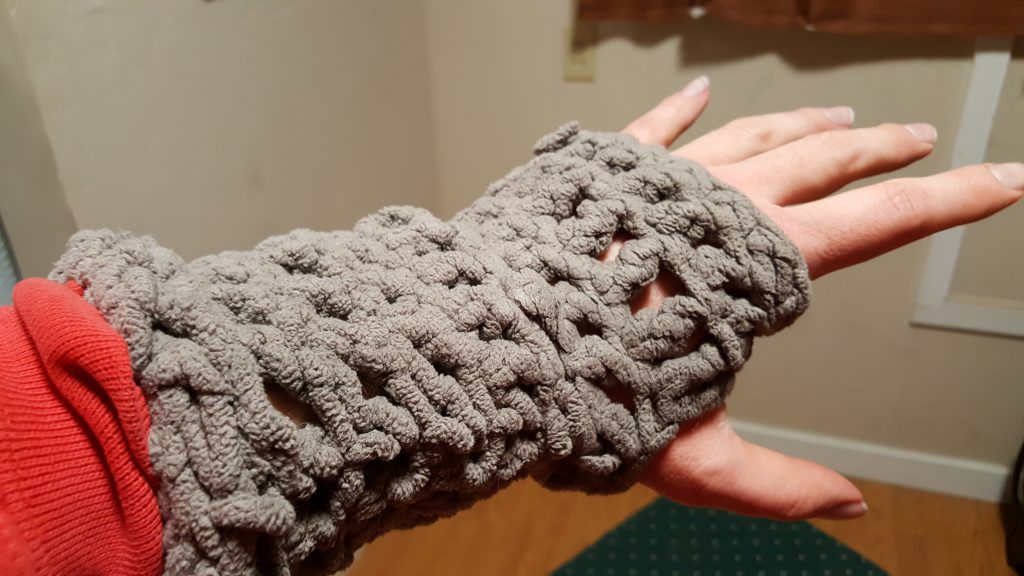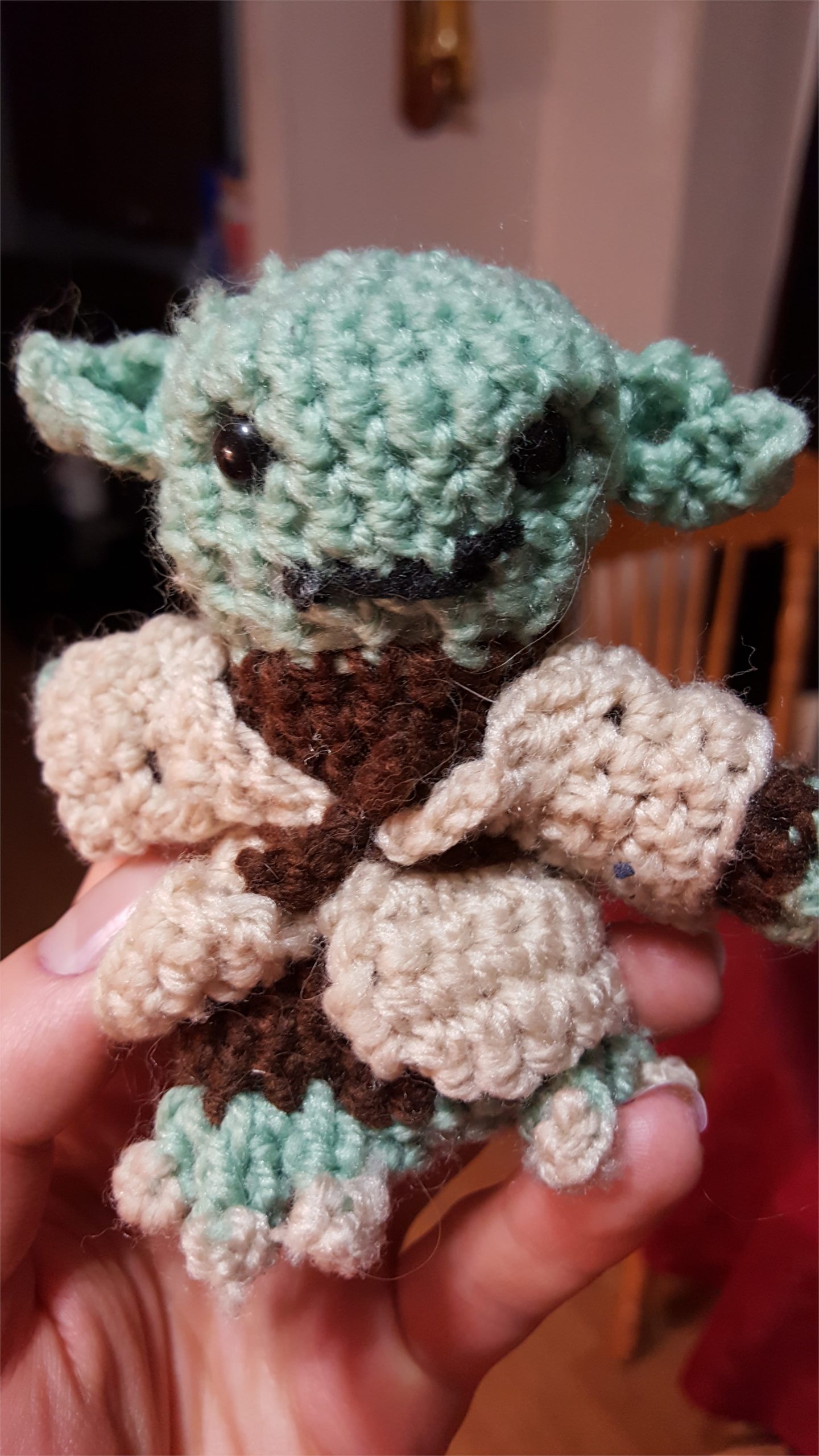If you’ve read my author bio, you know that I dabble in crochet. For those unfamiliar, crochet is a form of fiber art where you turn yarn into blankets, stuffed animals, etc. by using a metal hook to weave it together. My projects over the years have included a nearly life-sized TARDIS blanket for my best friend, small Star Wars stuffed animals, blankets, hand gauntlets, and more.
A few years back, I fell off of crochet and have only recently started to take up the hobby again. I’m finding I enjoy it just as much. I didn’t realize how much I’d missed it.
Yet as I endeavor to get back into crochet, I realize more the striking similarities between this hobby and my work as a writer. Perhaps that explains, in part, my great joy for the hobby?
For those who might not believe me, I present my three arguments for how crochet and writing are quite similar.
1. Both Require Combining Simple Things to Make Complex Things
Crochet involves taking simple stitches and joins and combining them in various ways to create something beautiful as a whole. The TARDIS blanket I made required 140+ rows of individual double crochet stitches. Each serves a vital function on its own, yet they all worked together to make the whole project work as one piece.
In writing, we take simple things like words and ideas, and we blend them to create complex paragraphs and chapters and stories. Every word in this blog post is quite remarkable when you stop and think about it. Individually they’re symbols, each with distinct meaning that gives form to an abstract concept of the world. Yet only by working together can they become a novel, or a blog post, or a screenplay, or anything else.
You reach a point as a writer where you don’t think about that phenomenon anymore. On occasion, it’s good to stop and consider it, though. To ponder what it means that every single word you use has both individual and team power all its own.

2. Both Are Expressions of the Person Who Creates Them
Though you may follow a pattern in crochet, the final piece you make is still an expression of yourself. From the tightness of the stitches, the choice of yarn and color, to what projects you choose to undertake. Every part of crochet is an expression of the crocheter and the artistic soul that dwells within.
Writing is an expression of the person doing it in all these ways and more. And, similar to reason one, I think sometimes it does us good as writers to stop and consider how our writing is an individual expression beyond the ones we usually talk about. I’ve thought a lot the past year on how the selection of writing projects can say a lot about a writer. Creatively, and about where they are in their life.
In my case, my recent selections say I’m eager to explore more of the universe I created in Roc Rider, but also to stretch my muscles into other realms and worlds.
As for where I’m at in life, I feel my recent choices of writing projects (I have numerous in various stages) reflect my desire to overcome past emotional baggage and move forward with life by putting painful events of the past away.
3. Both Require Sustained, Consistent Effort to Produce the Desired Result
I don’t know about other crocheters, but there are basically zero projects that I can finish in one day. It doesn’t matter how small or simple the pattern seems on the surface. Crochet takes time and concentration to do right and well. This means, to get a project finished, I have to keep plugging away at it, bit by bit until it’s done.
Writing is very much the same way. The only way a book gets done is if you work on it page by page over a period of time. Of course, sometimes, the process can be somewhat expedited, like in the case of the three-day novel contest. But even that still requires sustained consistent effort. The scale is just spread out over hours and three days rather than numerous weeks/months.
In both cases, I love to see how the whole picture slowly emerges from that effort, though. Building up the project, row by row, or sentence by sentence. Seeing what starts as virtually nothing take on form and power is quite moving.
And isn’t being moved what art, in whatever form, is all about?


